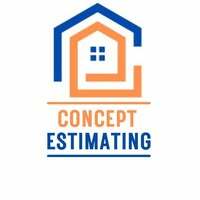Articles
Budgeting for Large-Scale Commercial Masonry Projects

Share article
When it comes to large-scale commercial construction, masonry plays a critical role in delivering strength, durability, and aesthetic appeal. However, without proper budgeting and planning, even the most promising masonry projects can run into delays and overspending. This is where Masonry Estimating Services prove to be invaluable.
In this article, we’ll explore how to budget effectively for large masonry jobs, the role of a Masonry Estimator, and why accurate Masonry Estimation is key to a successful project.
Why Budgeting Matters in Commercial Masonry
Commercial masonry projects involve substantial investments in materials, labor, and equipment. From structural walls to decorative stonework, each detail contributes to the total cost. Budgeting helps:
Prevent cost overruns
Allocate resources efficiently
Maintain project timelines
Ensure client satisfactionA poorly estimated masonry budget can derail the entire project. That’s why hiring professional Masonry Estimating Services is a wise first step.
What Are Masonry Estimating Services?
Masonry Estimating Services involve the detailed calculation of the total cost required to complete a masonry job. These services cover everything from bricks, concrete blocks, stone veneers, and mortar, to labor, scaffolding, and equipment rentals.
A professional Masonry Estimator assesses project plans, blueprints, and specifications to:
Quantify materials
Estimate labor hoursIdentify potential challengesProvide accurate pricingBy relying on expert estimating services, contractors and developers can avoid surprises and build solid financial plans.
Key Components of Masonry Budgeting
A precise Masonry Estimation involves various cost factors. Let’s break down the major components:
1. Material Costs
Materials make up a significant portion of masonry budgets. This includes:
Bricks or blocks
Mortar and grout
Reinforcement steel
Flashing and ties
The estimator calculates the quantity of materials needed based on project dimensions and specifications.
2. Labor Costs
Skilled masons, laborers, and supervisors must be accounted for. Labor costs are affected by:
Project complexity
Local wage ratesUnion vs. non-union labor
Expected completion time
A seasoned Masonry Estimator can accurately predict labor hours based on similar past projects.
3. Equipment and ToolsFrom scaffolding and forklifts to mixers and power tools, every item needs to be considered. Equipment rental or purchase adds to the overall cost.
4. Waste and Contingency
Material waste, unforeseen weather delays, or project design changes can impact the budget. Most Masonry Estimating Services include a contingency allowance (typically 5-10%) to handle such issues.
5. Overhead and ProfitEstimators also factor in company overhead (insurance, office expenses, project management) and desired profit margins.
How a Masonry Estimator Adds Value
An experienced Masonry Estimator doesn’t just crunch numbers—they offer strategic insights that save time and money. Their responsibilities include:
Reviewing architectural drawings and specsPerforming takeoffs to quantify materialsAnalyzing market trends for pricingIdentifying cost-saving alternativesHelping create winning bid proposalsBy delivering detailed and accurate estimates, they enhance transparency and allow better decision-making during project planning.
Advertisement

